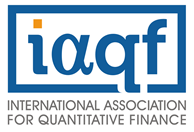
Abstract:
We examine the performance of Deep Learning methods applied to equity financial time series. Predicting equity time series is a crucial topic in Finance. To form equity portfolios and do asset allocation, we need to predict returns, compute their risk, and optimize market impact. One of the modeling benefits of Deep Learning architectures is the ability to model non-linear highly dimensional problems. The lack of transparency and a rigorous mathematical theory could be considered less positive sides. The fact that most progress in Deep Learning has been made by trial and error is also cumbersome. Equity financial time series is a challenging domain with some stylized facts: weak stationarity, fat tails in return distributions, small data sets compared to other areas of Artificial Intelligence (AI), slow decay of autocorrelation in returns, and volatility clustering, to name the most important ones. We perform a comparative study between Long ShortTerm Memory Networks (LSTM), Recurrent Neural Networks (RNN), Deep Feed-Forward neural networks (DNN), and Gated Recurrent Unit Networks (GRU). We perform two types of studies. The first focused on a univariate test, and the second a multivariate test. Our tests show that the LSTM performs the best compared to other Deep Learning and classical machine learning models. In terms of performance metrics, the LSTM is better than the baseline model. We also show that the predictions are better than chance. There is enough evidence thatRNN and LSTM can deal with stationary time series and learn the data generating process. Nevertheless, predicting equity non-stationary time series, with market developments like the one caused by the COVID-19 pandemic in 2020, is challenging.
Bio:
Miquel Noguer i Alonso is a financial markets practitioner with more than 20 years of experience in asset management, he is the Founder of Artificial Intelligence Finance Institute. Head of Development at Global AI and co-Editor of the Journal of Machine Learning in Finance.
He worked for UBS AG (Switzerland) as Executive Director. He is member of European Investment Committee for the last 10 years. He worked as a Chief Investment Office and CIO for Andbank from 2000 to 2006. He started his career at KPMG.
He is Visiting Professor at NYU Courant Institute of Mathematical Sciences and the CQF institute. He has been Adjunct Professor at Columbia University teaching Asset Allocation, Big Data in Finance and Fintech. He is also Professor at ESADE teaching Hedge Fund, Big Data in Finance and Fintech. He taught the first Fintech and Big Data course at the London Business School in 2017.
He received an MBA and a Degree in business administration and economics in ESADE in 1993. In 2010 he earned a PhD in quantitative finance with a Summa Cum Laude distinction (UNED – Madrid Spain). He completed a Postdoc in Columbia Business School in 2012. He collaborated with the Mathematics department of Fribourg during his PhD. He also holds the Certified European Financial Analyst (CEFA) 2000. He also holds the ARPM certificate.
His research interests range from asset allocation, big data, machine learning to algorithmic trading and Fintech. His academic collaborations include a visiting scholarship in Columbia University in 2013 in the Finance and Economics Department, in Fribourg University in 2010 in the mathematics department, and giving presentations in Indiana University, ESADE and CAIA and several industry seminars like the Quant Summit USA 2019 and 2010.

